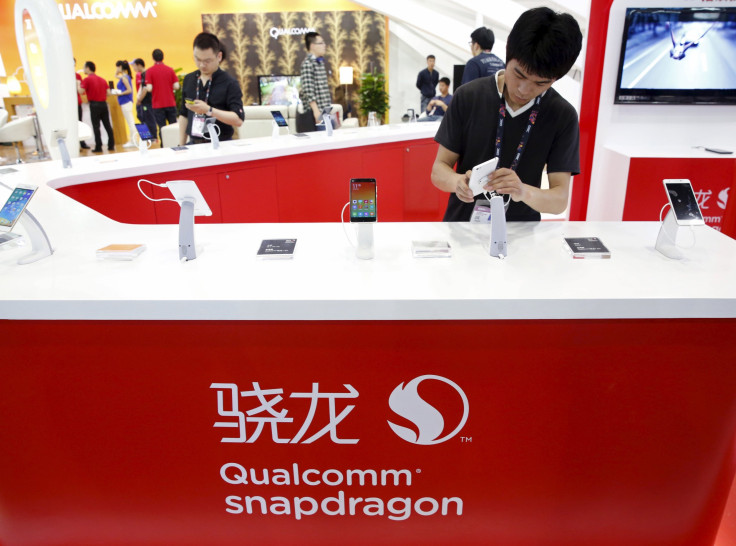Apple Sues Qualcomm For $1 Billion, Says Chipmaker Is Keeping Rebate Payment Ransom

Apple Inc. filed a $1 billion lawsuit against telecommunications equipment company Qualcomm on Friday, days after the Federal Trade Commission (FTC) questioned the company’s patent royalty practices and also accused it of engaging in anticompetitive tactics to ensure its monopoly on a key semiconductor used in mobile phones.
The FTC lawsuit filed Tuesday had also accused the San Diego-based chipmaker Qualcomm of forcing Apple to exclusively use its chips for iPhones. Fending off the allegations, Qualcomm had responded that it never withheld or threatened to withhold chip supply in order to obtain agreement to unfair or unreasonable licensing terms.
However, in its lawsuit, also filed in the U.S. District Court for the Southern District of California, Apple accused Qualcomm of withholding some $1 billion in promised rebates as ransom because Apple complied with investigations carried out by South Korea’s anti-trust regulator, the Fair Trade Commission. The South Korean regulator had fined Qualcomm 1.03 trillion won (almost $853 million) in December.
Apple also accused Qualcomm of overcharging the company for its chips. It said that Qualcomm offered to pay the money it had withheld “if Apple retracted and corrected its statements to government agencies,” according to the complaint, Bloomberg reported.
"Qualcomm built its business on older, legacy, standards but reinforces its dominance through exclusionary tactics and excessive royalties. ... Despite being just one of over a dozen companies who contributed to basic cellular standards, Qualcomm insists on charging Apple at least five times more in payments than all the other cellular patent licensors we have agreements with combined," Apple said in its lawsuit, according to Reuters.
"If that were not enough, Qualcomm then attempted to extort Apple into changing its responses and providing false information to the KFTC in exchange for Qualcomm's release of those payments to Apple. Apple refused," Apple added.
Qualcomm's stock fell 2.42 percent to close at $62.88 in New York, following the news. Apple's stock rose 0.18 percent to close at $120.
Commenting on Apple's allegations, Don Rosenberg, executive vice president and general counsel at Qualcomm, said in a statement Saturday: “It is quite clear that Apple’s claims are baseless. ... Apple has intentionally mischaracterized our agreements and negotiations, as well as the enormity and value of the technology we have invented, contributed and shared with all mobile device makers through our licensing program.”
Qualcomm also accused Apple of inciting regulators against the chipmaker in “various jurisdictions around the world,” by “misrepresenting facts and withholding information.”
"We welcome the opportunity to have these meritless claims heard in court where we will be entitled to full discovery of Apple’s practices and a robust examination of the merits,” it added in the statement.
Qualcomm owns numerous essential patents in the CDMA (code division multiple access) and LTE (long-term evolution) mobile standards and charges mobile companies and other chipmakers royalties for using them.
The company is also being investigated in Europe, Japan and Taiwan for anticompetitive and monopolistic trade practices. Apple used Qualcomm's chips until its latest iPhone 7 model in September 2016, when its exclusivity agreement signed from 2011 until 2016 lapsed.
© Copyright IBTimes 2024. All rights reserved.






















